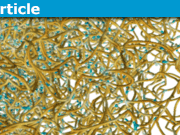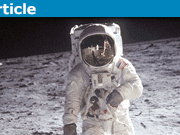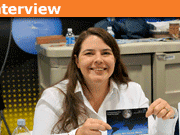Interview with Astrophysicist D H
Meet a Mentor is a series to help you get to know your wonderful Mentors better.
Constructive questions and comments are welcome!
Today we meet: D H
Give us a brief history of D H
I spent my childhood in Minnesota, the first nine years in Minneapolis and the last nine on a farm. I went to college in upstate New York, obtaining a bachelor’s degree in Applied and Engineering Physics. I’ve taken a number of graduate classes afterwards, but I’ve never felt compelled to get an advanced degree once I started working.
I first worked in suburban Maryland, mostly as a NASA contractor, but also for NOAA and DoD. I’ve been in Houston for the last 26 years, again working with various NASA contractors.
I met my wife during that time in Maryland. We have three sons. All of them are adults now and all are out of the house.
How did you become interested in physics?
It was the very tail end of first grade, on May 25, 1961. I heard Kennedy’s speech that night on the nightly news. It was awe inspiring. More importantly, that speech forced huge changes in the how the education system fostered and taught science and math. Those changes lasted throughout the 1960s and into the 1970s, right when I was going to public schools.
Can you tell us about your career in the aerospace industry?
It started as a fluke. I had been accepted to a PhD program with plans to study statistical physics. My plans changed two days before graduation. I was the best man at a wedding, 150 miles from school. The groom’s parents received a phone call — for me. My advisor decided that that was the best time to tell me I wasn’t going to be graduating. I took five liberal arts courses in my freshman and sophomore years, three in my junior and senior years. He was of the opinion that the split should have been four and four. After the wedding, a friend who had graduated the previous year asked if I still wanted to go to grad school. “You’ll be facing seven years of that nonsense. Or you could leave it all behind. I could help you get a job. Tomorrow.”
I took his offer, and I got the job.
That first job was very educational. It was supposed to be a simple job, safe for a freshout of dubious quality.
A team of three had left a subproject because their work was finished except for the boring documentation. That was to be my job. The team had created ream upon ream of test output to prove they were finished. I started diving into the code a week or so after my start date, and I immediately started getting very confused. A week or so later I relayed this growing confusion to my friend and our boss, both of whom assured me the problem was most likely me and my lack of understanding.
“Just keep reading.”
Another week or so later I was getting less confused. The problems I was seeing were real. I was almost sure of it. It was finally time to look at that so-called test output. Within hours after my first look, I had the entire management chain, plus the company lawyer, crammed in my little office. Not one bit of that “proof by thickness” test output showed working code. Some of those reams of output reported compilation failures, but the vast majority was pile after pile of core dumps. The company fessed up to NASA. Instead of a boring post-production documentation job, I got to work on a high priority blank slate problem.
Later on, with another employer, I worked on another blank slate problem, software for weather satellite ground stations to be put all over the world. I spent several months in communist China, several more in Argentina. Argentina was tense. The country was on the verge of holding their first free election after years of alternating between left and right wing dictatorships. The tension built and built as the election drew nearer. We left, job unfinished, after one too many sleepless night (our hotel was right across the street from Raul Alfonsin’s campaign headquarters) and after being accosted by the military police one too many times.
We returned to finish the job after the election and subsequent celebrations were over.
My move to Houston was another unplanned adventure. I added artificial intelligence to my repertoire with my fourth employer. My work garnered some interest at Johnson Space Center, so my employer loaned me to their Houston office for six months. I became infected with the human spaceflight bug during that time. I transfered to Houston 26 years ago, and here I remain. (Different employer, but still human spaceflight.)
What topics in aerospace are you most closely watching?
Private space and the next step in human spaceflight.
The next step in human spaceflight is sending humans to an asteroid orbiting the Moon. What asteroid orbiting the Moon? It’s not there yet. The plan is to capture one robotically and bring it back to lunar orbit.
Do you have a favorite thread, story or memory on Physics Forums?
Not really. There are so many, and so many of the better threads tend to be short.
What are some of your favorite spots or things to do in Houston or Texas in general?
A good thing to do anytime in Texas is to go out to eat. The Houston-Galveston area is full of very good restaurants of all sorts. A good thing to do in Texas anytime between June and September is to go from Texas to ~Texas.
I take a daily hour-long walk through the woods and down to the beach. Two of my three lady friends think these walks are utterly romantic. The third, my wife, thinks the woods are full of vines that bite, brambles that bite, fire ants that bite, mosquitos that bite, flies that bite, snakes that bite, and in the swamps along the way, gators that bite. The turnaround point isn’t so much a beach as it is a muddy shelf on a poison-filled bayou. To her it’s hot, humid, nasty. “No thanks, I’ll pass. Take the dogs for your walk. See you in an hour.”
If you could have lunch with living physicist, who would it be and why?
Just one? Two, please? One would be Neil DeGrasse Tyson. The other would be Shane D. Ross. Most everyone knows the former, most do not know the latter.
Tyson is one of the few popularizers of science who tries hard not to mystify. He knows the boundary between physics and metaphysics. He also is one of the few physicists and astronomers who values human spaceflight.
Ross is the young torchbearer of the work largely started by Jerry Marsden on applying the concept of invariant manifolds to space travel. Ross worked with Martin Lo on developing the concept of the “Interplanetary Superhighway”.
What do you see as the biggest problem in science education today and what are some ideas on how to solve it?
Politics at odds with reality.
Education suffers whenever political ideology butts heads with reality. A few examples: evolution is real, vaccinations save lives, and decimating the public education budget will not solve any country’s economic woes. The current anti-intellectual / anti-education political gestalt in the U.S. is but the latest incarnation of this oft-recurring problem.
The solution is obvious: Vote the idiots out. Unfortunately, too many of us like to vote the idiots in.
What are some of your favorite movies, books and musicians?
I used to like science fiction, but today’s science fiction is mostly science-free. It’s just sword and sorcery, sometimes magically on an alien planet. The old standard bearers are long gone, the killer Bs have all retired.
Occasionally I’ll try to read serious literature. It took me four tries to get through The Magic Mountain, three to get through Gravity’s Rainbow. This turns out to be good training for reading what would otherwise be an obscure and dense mathematics text. The Magic Mountain helped me get through Rudin, for example. I’m holding off on attacking Ulysses until I finally decide to attack differential geometry and manifolds. I’m hoping the synopsis isn’t something like “A person walks around abstract mathland. Nothing practical happens.”
Thanks for participating D H!
I have a BS in Information Sciences from UW-Milwaukee. I’ve helped manage Physics Forums for over 22 years. I enjoy learning and discussing new scientific developments. STEM communication and policy are big interests as well. Currently a Sr. SEO Specialist at Shopify and writer at importsem.com








Leave a Reply
Want to join the discussion?Feel free to contribute!